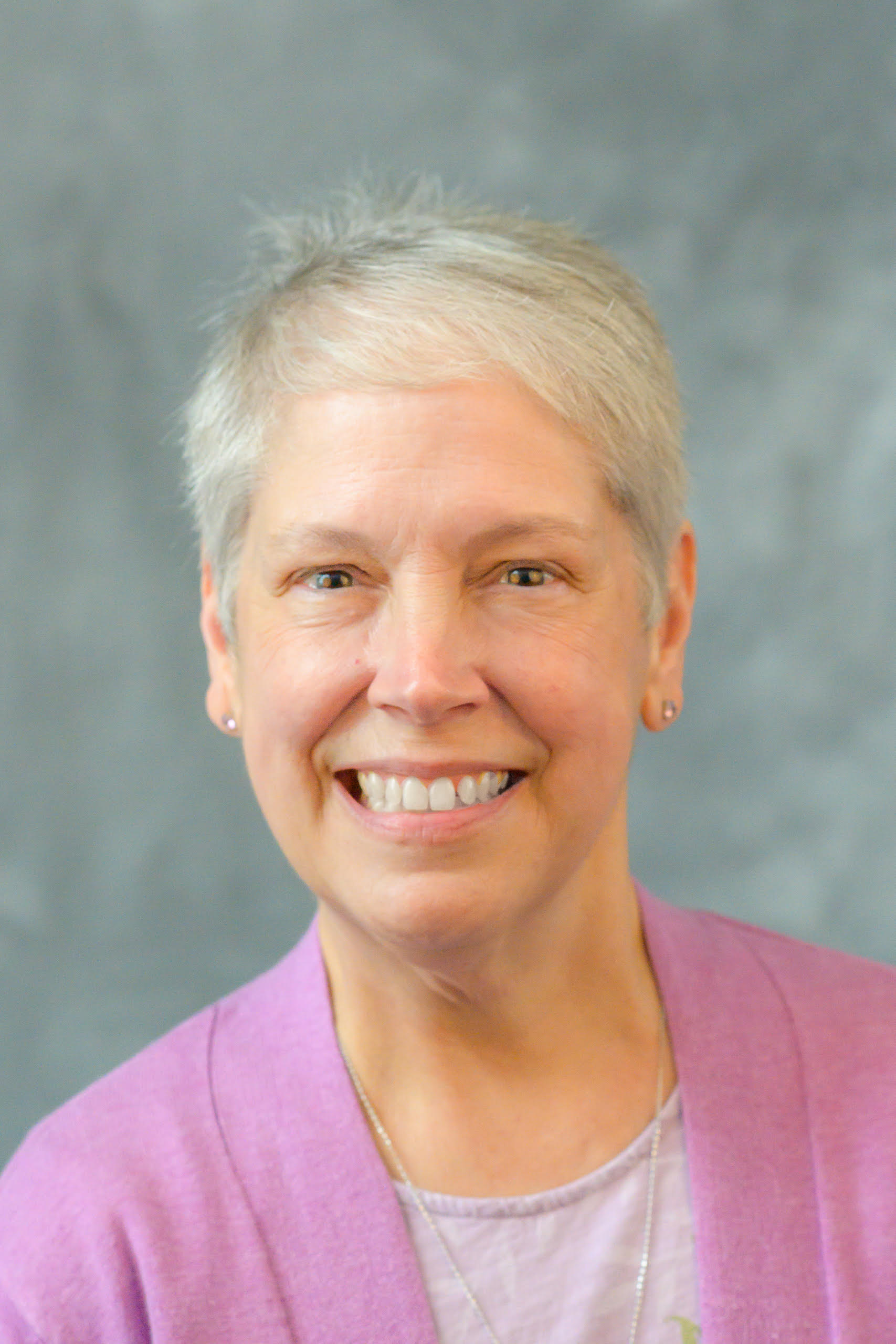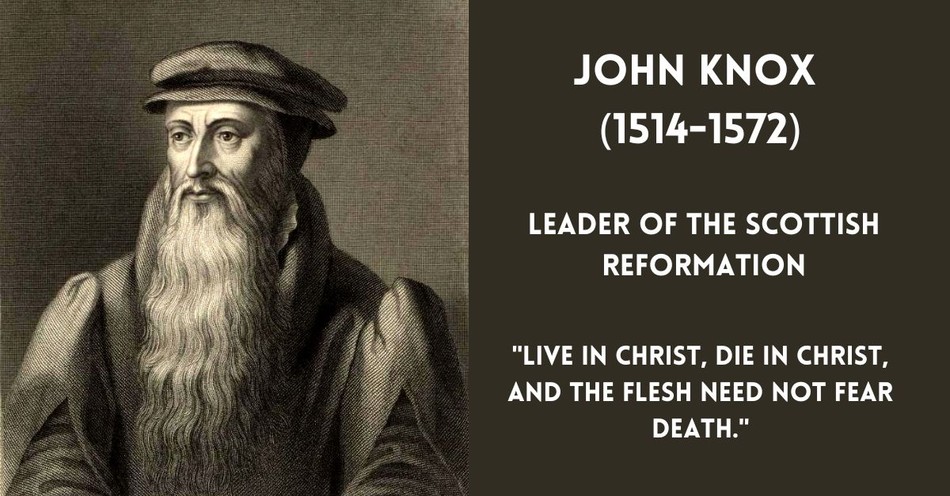John Knox is best known for his involvement in the Scottish Reformation. He lived a life filled with dedication to his beliefs. Through turmoil and controversy, John Knox preached and aimed to share his views with others. Those ideas and devotion often caused harsh disagreements with those who did not share his vision for change in the church.
Who Was John Knox?
John Knox is known as the leader of the Scottish Reformation or Scottish Presbyterianism. Knox is reported to have studied for the priesthood and received a bachelor of divinity degree. He became an ordained priest in 1536. Knox learned some of his views from John Calvin and George Wishart and converted to the Reformed faith after following Wishart. His dedication to Wishart was shown when he protected the man with a sword.
Historians have referred to John Knox as one of the fathers of English Puritanism. Knox was instrumental in establishing a new way of thinking for congregations. In a major confrontation with Queen Mary of the Scots, she is reported to have said, “I fear John Knox’s prayers more than all the assembled armies of Europe.”
When he became a minister in Geneva, divisions were strong between Roman Catholic rulers and Protestant leaders. John Knox shared his beliefs with the Scottish Parliament. He believed there should be regulations for congregations to follow. The Book of Common Prayer was to be the guide for worship and how to govern in the churches.
Knox wrote other works, but according to historians, only two of the many sermons he penned were ever published.
What Did John Knox Believe?
Exposure to Calvin and Wishart’s teaching helped Knox form strong opinions about religion. Historians report that John Knox agreed with some of Martin Luther’s ideas about the Roman Catholic Church. Luther believed the church was corrupt. Luther is said to have reported leaders in the church were ignoring the poor and keeping money for themselves.
Knox strongly believed that the bread and wine served in communion were not actually Christ. His denouncing of Catholic rulers led to turmoil and power struggles.
One controversial view that John Knox reportedly held was about women. According to scholars, Knox believed women were inferior to men. He is reported to have said women were incompetent to rule in church and government. It is worth noting that Scripture shares how Jesus was a friend to everyone, including women. Some of the first meetings to learn and share about God were formed by the women of Jesus’s time. People met in the homes of women and learned the gospel message.
The Presbyterian Church (USA) began ordaining women as elders in 1930. By 1956, women were included as ministers of Word and Sacrament. Today, women serve in many roles in the Presbyterian church. From clergy, deacons, elders, team leaders, and more, women are vital parts of the church.
10 Events in the Life of John Knox
1. In 1536, Knox graduated from the University of St. Andrews, becoming an ordained priest.
2. In 1543, Knox converted to Protestantism after leaving the Roman Catholic church over differences over liturgy.
3. In 1547, Knox was imprisoned and served as a galley slave for 19 months.
4. In 1549, Knox began preaching in England after being released from prison.
5. In 1551, Knox became one of six royal chaplains to King Edward VI.
6. In 1558, Knox wrote “The First Blast of the Trumpet Against the Monstrous Regiment of Women,” which advocated rebelling against ungodly rulers.
7. In 1559, Knox arrived in Scotland after years of living in Geneva. He preached a sermon at St. John’s Church in Perth, which reportedly caused a riot. Once again, his firm beliefs caused trouble.
8. In 1560, Knox and other leaders of the Protestant Reformation wrote The Scots Confession (a Confession of Faith).
9. In 1564, Knox wed his first wife, Marjorie Bowes. They went on to have two sons. After Bowes’ death around 1560, Knox married Margaret Stewart, who was 17 years old. They had three daughters.
10. On November 24, 1572, Knox died. Scholars report that he died while listening to Bible readings from his friends and his wife.
10 Quotes by John Knox
1. “I have never once feared the devil, but I tremble every time I enter the pulpit.”
2. “A man with God is always in the majority.”
3. “The Scriptures of God are my only foundation and substance in all matters of weight and importance.”
4. “Live in Christ, die in Christ, and the flesh need not fear death.”
5. “I sought neither pre-eminence, glory, nor riches: my honor was that Christ Jesus should reign…”
6. “If anything proceeds from faith, it must have the Word of God for assurance: for ye are not ignorant that “faith comes by hearing, and hearing by the Word of God.”
7. “The proof thereof I would gladly hear.”
8. “The Spirit of wisdom, constancy, and strength be multiplied with you, by the favor of God our Father, and by the grace of our Lord Jesus Christ.
9. “Let no day slip over without some comfort received from the mouth of God.”
10. “O Lord Eternal, move and govern my tongue to speak the truth.”
Why You Should Know about John Knox
1. John Knox helped write the new confession of faith for Scottish Protestants.
2. He believed there should be rules of conduct for each person.
3. Knox wanted to obey God and wanted others to obey God, too.
4. John Knox is remembered as a Protestant Reformer, and his teachings are still in use today.
5. Although some of his views were controversial, his determination helped form a new way of church government.
6. John Knox believed that God was the ultimate authority in life. He argued that the church was not worthy to be the authority of all.
7. Historians report only one monument is erected to John Knox in Scotland. Portraits and statues of Knox are displayed in other areas. His grave is reported to lie beneath a parking lot.
Presbyterianism and John Knox
The legacy of John Knox continues today in the Presbyterian USA church. His beliefs helped shape the future of worship.
Presbyterianism is defined as “a form of Protestant Church government in which the Church is administered locally by the minister with a group of elected elders of equal rank, and regionally and nationally by representative courts of ministers and elders.”
In the Presbyterian Church USA today, the governing body relies on the congregation for input and decision-making. The church’s people elect elders and sometimes deacons to address church needs and considerations. The elders, deacons, and clergy report to the church members. The Presbyterian USA church includes women and men in roles of leadership.
The life of John Knox reminds us that any person can be used to further the gospel. With a life filled with controversy, imprisonment, family sadness, and many disagreements due to his views, Knox might have wanted to give up his quest. However, he continued to pursue his goals of changing the church and teaching others the way to Christ.
A quote from John Knox reads, “Let no man think himself unworthy to call and pray to God…but let him bring to God a sorrowful and repenting heart.”
The opportunity to learn from the past is always available. Our goal is to worship God, not people, and to share His message in our words and actions.
When we consider the various church leaders today, we must remember there are times when leaders make mistakes and need help with change. We can take our doubts and concerns to God and ask for His guidance. There are wonderful church leaders, and we can learn from them.
Prayer for Discernment in Choosing Church Leaders
Father, thank You for people who want to share Your message. Even when the path may be filled with tough situations and arguments, there are men and women who continue to teach Your Word. Help us to have discernment when dealing with false teachers. Guide us to know the truth and to stay in Your Word. Father, help us to be humble and kind in every moment. Amen.
In His Name,
Melissa Henderson
Further Reading:
10 Things You Need to Know about John Calvin
Scottish Parliament Ratified Protestant Confession
Martin Luther, Monumental Reformer
Photo Credit: Public Domain photo/Wikimedia Commons

Melissa is the author of Licky the Lizard and Grumpy the Gator. Her passions are helping in the community and church. Melissa is an Elder, Deacon, and Stephen Minister.
Follow Melissa on Facebook, Twitter, Pinterest, and at https://www.melissaghenderson.
This article is part of our People of Christianity catalog that features the stories, meaning, and significance of well-known people from the Bible and history. Here are some of the most popular articles for knowing important figures in Christianity:
How Did the Apostle Paul Die?
Who are the Nicolaitans in Revelation?
Who Was Deborah in the Bible?
Who Was Moses in the Bible?
King Solomon's Story in the Bible
Who Was Lot's Wife in the Bible?
Who Was Jezebel in the Bible?
Who Was the Prodigal Son?




